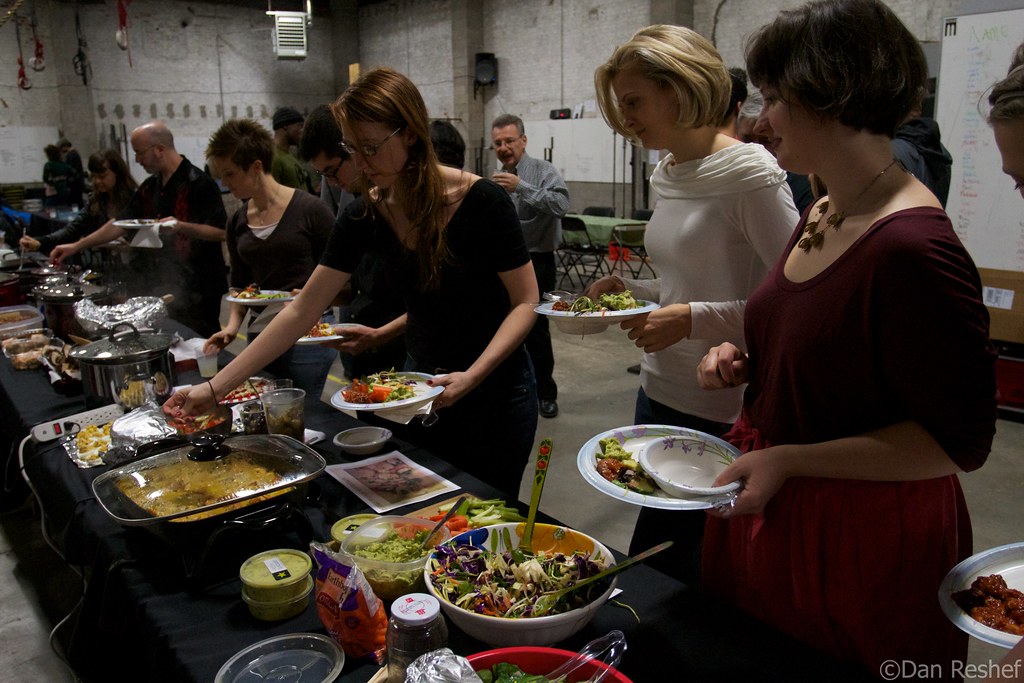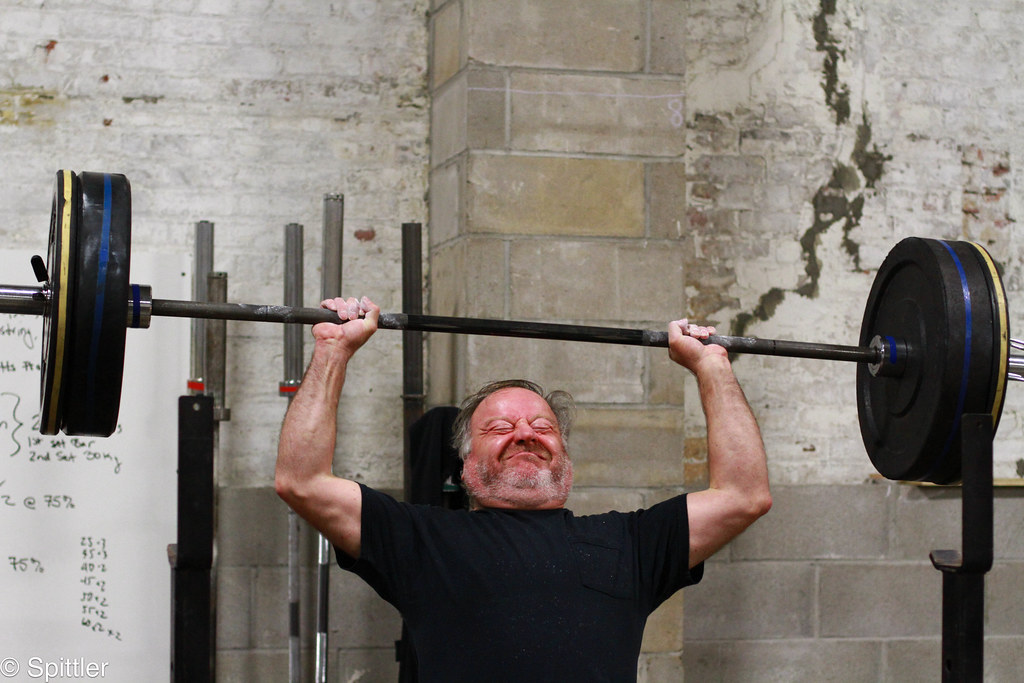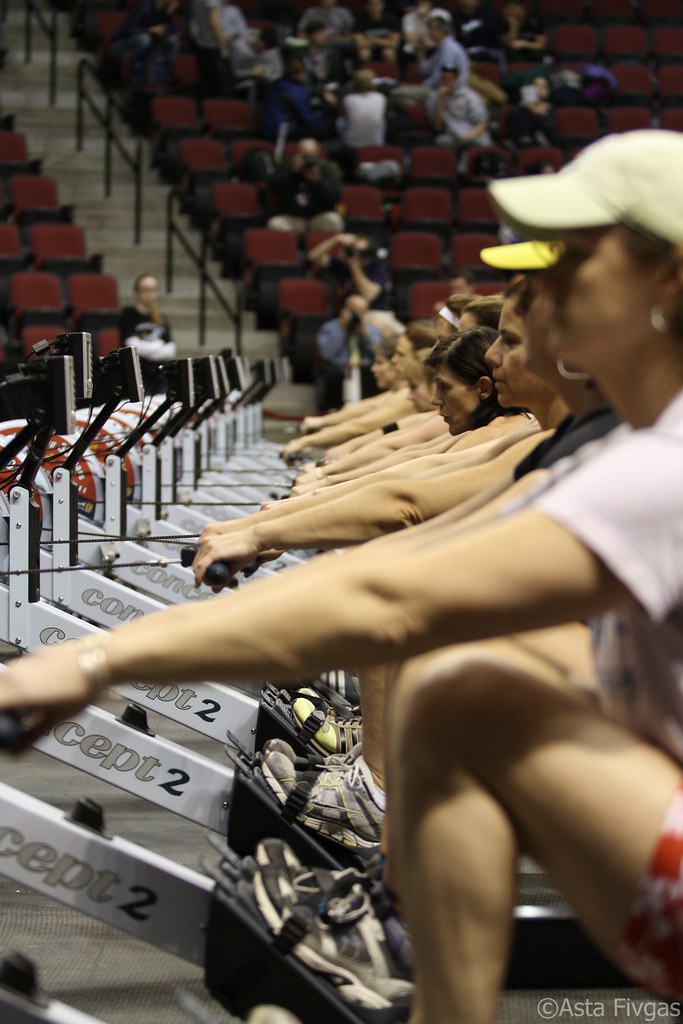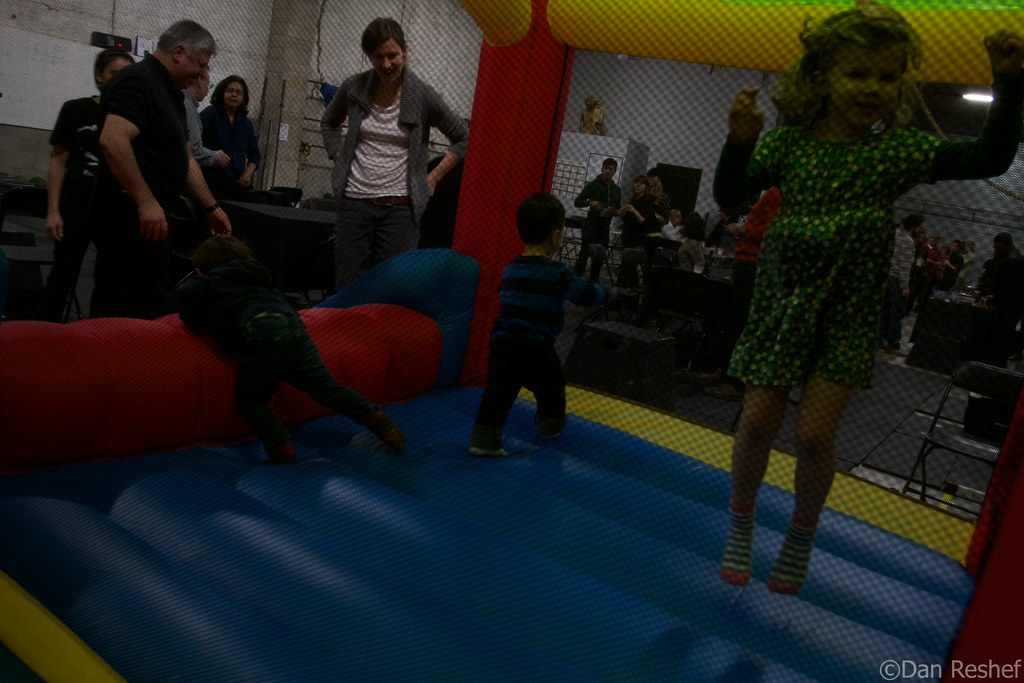AMRAP in 20 Minutes:
Run 400m
20 Wall Ball Shots 20/14
Post RX and Rounds to comments.
Compare to 3.21.10
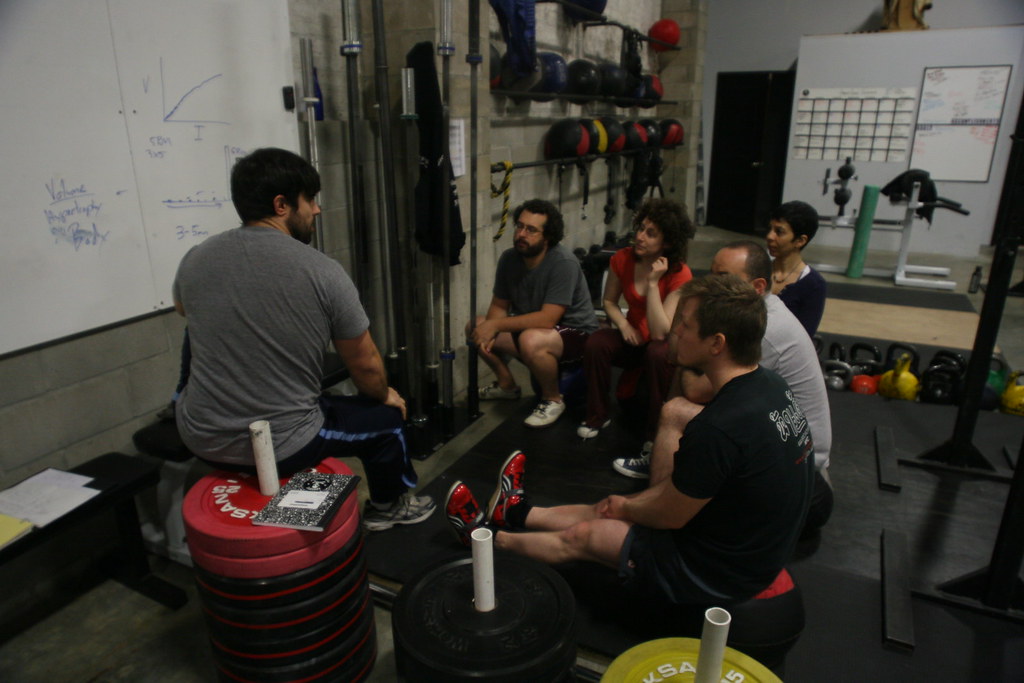
Coach Jeremy gives a Training Lecture to the Strength Intensive
Changes to This Weekend's Schedule
Remember there is NO 12pm Group class, Active Recovery and CrossFit Kids class this Saturday due to the CF Games Open Sectionals. All other classes run as regularly scheduled.
Canes: Not Just for Pimps Anymore!
Three (count 'em) new TheraCanes arrived yesterday! Have a hard to reach knot in your back? Grab the 'cane and use one of the 6 strategically placed balls (HA!) to work it out! There are a couple of a handy dandy manuals in the gym as well if you're looking for ideas on how to hit those hard to reach spots.
__________________
Who's participating in Sectionals this weekend? Who is coming out to cheer on and support their fellow CFSBK members for WOD #1?
__________________
CF Games Open Sectionals WOD #1 Crossfit
Just Say No To Scaling Crossfit
Clues to Gluten Sensitivity Wall Street Journal

